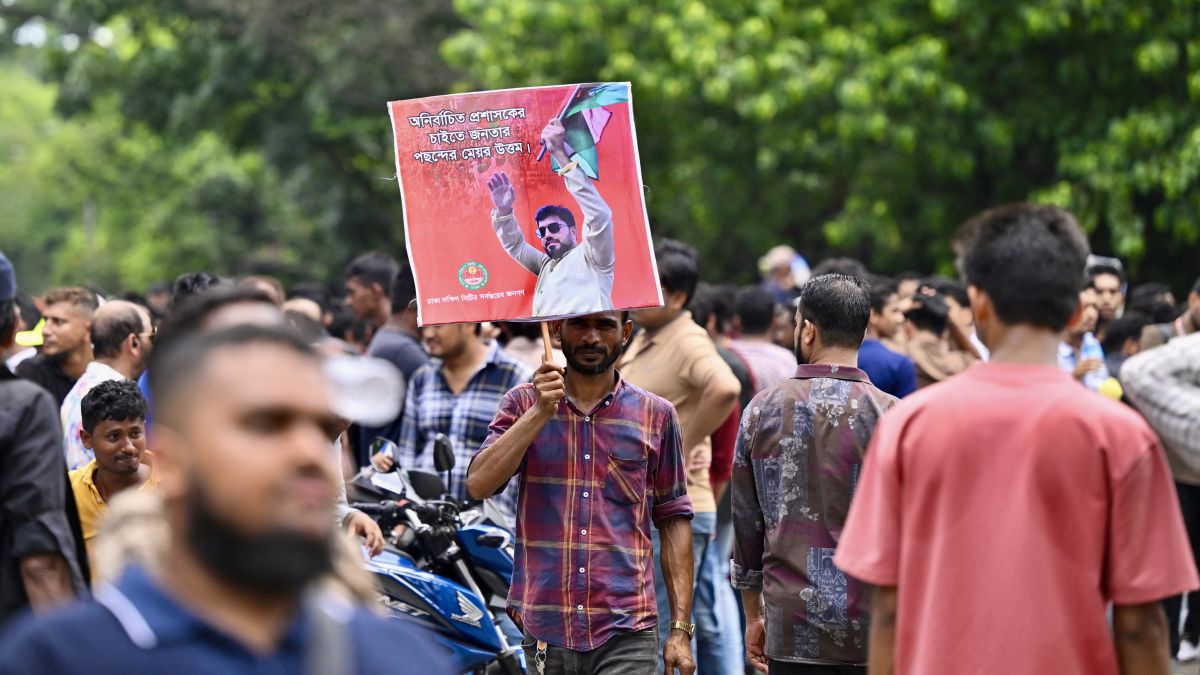The once robust political alliance between the Bangladesh Nationalist Party (BNP) and Jamaat-e-Islami (JeI) is now showing signs of deep fracture, prompting speculation that Jamaat may be orchestrating a political manoeuvre to isolate, discredit and eventually ban the BNP ahead of the upcoming national elections. Recent developments suggest a calculated strategy by the Islamist party to sideline its long-time ally and emerge as a dominant political force.
Rising acrimony between allies
Tensions between the BNP and Jamaat have escalated sharply in recent weeks. Jamaat has reportedly threatened to push for a ban on the BNP despite decades of political partnership rooted in shared opposition to the Awami League. This unexpected rupture signals a broader power shift within Bangladesh’s Islamist and nationalist opposition blocs following the fall of Sheikh Hasina’s government in 2024 and the rise of an interim administration led by Nobel laureate Muhammad Yunus.
Jamaat’s intention appears to be not just to break away, but to eliminate BNP as a serious competitor in a bid to consolidate Islamist control over the political terrain.
Violence on campus: A tactical escalation?
In a rare and symbolic confrontation, violent clashes erupted over the weekend between Chhatrashibir — the notorious student wing of Jamaat — and the BNP’s student affiliate. Such infighting between long-aligned groups was previously unthinkable, underlining the severity of the current rift.
Some reports suggest that BNP student activists have been forcibly ousted from Dhaka University hostels and other educational institutions, with Chhatrashibir allegedly leading the charge.
These skirmishes appear less spontaneous and more like a prelude to a larger scheme. As one source explained, the plan may involve allowing BNP to stir unrest nationwide, cultivating public frustration and then engineering a violent event that justifies banning the party entirely.
Jamaat’s strategic positioning
For years, the BNP and Jamaat alliance functioned as a cornerstone of opposition politics in Bangladesh. This partnership, formalised in the late 1990s, delivered significant electoral gains, notably in the 2001 general elections.
However, that same period witnessed increased Islamisation of state institutions and growing ties between segments of the government and extremist groups. The fallout of that governance era continues to haunt BNP’s credibility.
Now, Jamaat seems to be recalibrating. The BNP’s senior leadership has started publicly accused Jamaat of ideological overreach in the academic and health sectors, signalling a desire to distance themselves from Islamist dominance.
The rhetoric has coincided with Jamaat’s efforts to realign with other, more radical Islamist factions such as Islami Andolan Bangladesh (IAB), while maintaining pressure on BNP through confrontation and political subterfuge.
Impact Shorts
More ShortsA plot for political elimination?
The central allegation—that Jamaat is setting up BNP for a ban — gains credence when viewed in light of Bangladesh’s volatile political history. The current situation bears a resemblance to previous state-led suppression tactics, albeit now seemingly employed by a former ally.
The strategy, reports say, involves pushing BNP into a corner through provoked violence and engineered chaos. This would give the interim regime and Islamist-leaning factions within it, a pretext to outlaw BNP altogether under national security or public order pretence.
Such a ban would clear the field for Jamaat and its ideological offshoots to assert control in an election where secular heavyweights like the Awami League have been significantly weakened.
BNP’s identity crisis
The BNP faces an identity crossroads. On one hand, it has a relatively secular legacy among the parties in the fray after Sheikh Hasina’s Awami League was taken out of Bangladesh’s political equation. It still has some leaders who speak about the spirit of the Liberation War and favour the inclusion of Hindu and minority representatives.
On the other hand, it continues to engage with Islamist groups to shore up support for upcoming elections. BNP’s recent outreach to IAB, following Jamaat’s similar attempts, exemplifies this tightrope walk.
Analysts argue that BNP has an opportunity to reclaim its secular credentials and lead a democratic, pluralistic coalition. However, wavering between Islamist and secular forces risks alienating both sides. If BNP fails to clearly define its ideological direction, it may be outmanoeuvred not just electorally, but structurally.
New power equation
The political vacuum left by the Awami League’s ouster has allowed new forces — particularly fundamentalist ones — to assert influence. While BNP assumed it would automatically step into power, the emerging scenario has shown otherwise. Jamaat, reduced in electoral power due to its deregistration, is traversing through informal alliances, madrassa networks and student activism. There are also signs of Hizb ut-Tahrir-linked elements gaining prominence within the new opposition framework, especially among student movements.
Jamaat and its allies, despite their provocative positioning, have limited formal reach, and look to employ back-door tactics to control the political narrative. If successful, BNP could find itself squeezed out, either through disqualification or marginalisation.
A strategic elimination?
All signs point toward a calculated attempt by Jamaat-e-Islami to marginalise, discredit, and ultimately eliminate BNP from the electoral contest. Whether through student violence, engineered unrest or ideological delegitimisation, Jamaat appears to be laying the groundwork for a dramatic reshaping of Bangladesh’s opposition.
BNP now faces a dilemma to tilt towards secularism as Awami League is out of the question as of now, and risk alienation from Islamist voters, or attempt a balancing act and risk losing votes to Islamist Jamaat. The weeks ahead may determine whether Bangladesh sees a pluralistic future or a slide into ideological hegemony masked as political realignment.


)

)
)
)
)
)
)
)
)



